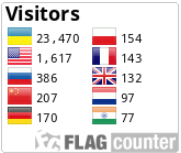METHODOLOGY OF FUTURE DENTISTS’ FOREIGN LANGUAGE COMPETENCE FORMATION ON THE BASE OF CAMBRIDGE METHODS OF ENGLISH LANGUAGE TEACHING
DOI:
https://doi.org/10.28925/2518-7635.2017.2.6Keywords:
introduction, foreign language competence, leadership competence, professional competence, PPP lesson, presentation, practice, production.Abstract
The article deals with the improvement of future dentists’ foreign language competence formation based on the Cambridge methods of English language teaching. Future dentists have a strong need to receive professional knowledge from foreign sources and communicate to their colleagues. Moreover the foreign language competence is an important part of professional competence. Thus foreign language competence formation of future dental specialists contains certain diversity; it is not typical for other specialties. As a result it requires thorough analysis of Cambridge methods of English language teaching in order to adapt and improve them for future dentists. On the base of own pedagogical experience this advanced methodology was designed as student-centered one and includes new improved tasks for better language competence formation. Original Cambridge methodology was also improved by implementing the new “verification” stage of the lesson. This methodology was applied at the Bologolets Nalional Medical University and has brought positive results. It will become the base of increasing level of competitiveness not only in our country and abroad as well.
Downloads
References
Al-Musawi, N. M. (2014). Strategic use of translation in learning English as a Foreign Language (EFL) among Bahrain university students. Innovative Teaching, published by Ammons Scientific LTD,3, 2–10. doi: 10.2466/10.03.IT.3.4
Byrne, D. (1986). Teaching oral English (2nd ed.). Harlow, United Kingdom: Longman.
Crystal, D. (2003). English as a global language (2nd ed.). Cambridge, United Kingdom: Cambridge University Press.
Gass, S. (1999). Incidental vocabulary learning: Discussion. Studies in Second Language Acquisition, 21(3), 19–33.
Harmer, J. (2001). The practice of English language teaching (3rd ed.). London, United Kingdom: Pearson Education Limited (eng).
Harmer, J. (2000). How to Teach English. London, United Kingdom: Longman.
Grynevich, L. (2017, April 04). U rozvytku movnoji osvity v Ukrajini je try osnovni naprjamky, i najvazhlyvishyj – zabezpechennja viljnogho volodinnja derzhavnoju movoju [In the development of language education in Ukraine there are three main directions, and the most important – to ensure fluency in the national language]. Retrieved from http://mon.gov.ua/usi-novivni/novini/2017/04/13/liliya-grinevich-u-rozvitku-movnoyi-osviti-v-ukrayini-e-tri-osnovni-napryamki/
Kubacheva, K. I. (2014). Basic principles in the formation of communicative competence of medicine specialists. The Journal of Teaching English for Specific and Academic purposes, 2(1), 141–142.
Kulbashna, Ya. (2014). Formuvannja profesijnoji kompetentnosti majbutnikh fakhivciv iz stomatologhiji: teoretychni j metodychni osnovy: monoghrafija [Formation of professional competence of future specialists in dentistry: theoretical and methodological foundations: monograph]. Instytut vyshhoji osvity Nacionaljnoji akademiji pedaghoghichnykh nauk Ukrajiny, Nacionaljnyj medychnyj universytet imeni O. O. Boghomoljcja. Kyiv, Ukraine: Kompas.
Kulbashna, Ya., Tkachuk, O., & Zakharova, V. (2016). The development of foreign language and leadership competencies in providing competitiveness of future doctors European Humanities and Studies: State and Society, 4, 260–270.
Kulbashna, Ya., Zakharova, V., & Tkachuk, O. (2017). Improvement of future doctors’ foreign language competence formation methodology in the context of medical emergencies. Visnyk Ljvivsjkogho derzhavnogho universytetu bezpeky zhyttjedijaljnosti, 15, 209–214.
Lessard-Clouston, M. (2013). Teaching Vocabulary. English Language Teacher Development Series. Alexandria, Virginia 22314 USA: TESOL International Association.
Lewis, M. (1993). The lexical approach: The state of ELT and a way forward. Hove, United Kingdom: Language Teaching Publications.
Maftoon, P., Hamidi, J., & Sarem, S. (2012). A Critical Look at the Presentation, Practice, Production (PPP) Approach: Challenges and Promises for ELT. BRAIN. Broad Research in Artificial Intelligence and Neuroscience, 3(4), 31–36.
Scrivener, J. (2002). Learning Teaching (2nd ed). London, United Kingdom: Collins ELT.
Thornbury, S. (1999). How to teach grammar. Harlow, United Kingdom: Longman.
Ur P. (1996). A course in language teaching: Practice and theory. Cambridge, United Kingdom: Cambridge University Press.
Wilkins, D. (1972). Linguistics in language teaching. London, United Kingdom: Arnold.













